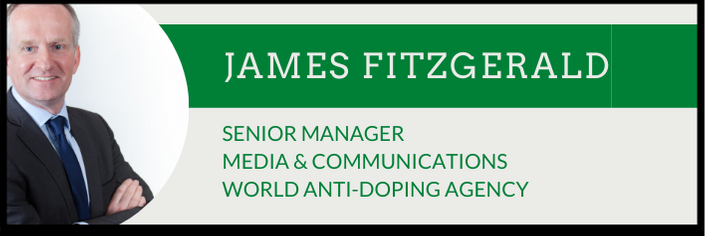Published Date: May 3rd, 2021
Back in December, ICCC Montreal was honoured to welcome former Deputy Prime Minister of Canada, the 29th Premier of Quebec, and partner at leading Canadian law firm McCarthy Tétrault LLP, Jean Charest, as a special guest speaker. In what was a fascinating and insightful lecture, Mr Charest presented his impressions of the global trade climate, including his thoughts on post-election USA and what its effects might be on the trade outlook for Canada, Ireland and the rest of the world.

Jean Charest is a numbers guy. He doesn’t second guess the data. He lets them speak for themselves. If you want to understand trade, where we are now and where we want to be years from now, he says, it is extremely important to understand what the broader trends are. Not what your feelings are, not what your gut is telling you or what you heard down the pub (remember when we were allowed out?), but what is actually happening. What moves the dial on trade? And what is stopping that dial from shifting?
The former Quebec Premier took time out of his schedule in December 2020 to speak to ICCC members and to give them an insight into what forces have been affecting trade in North America, Ireland and globally over the past decades. Overall, he said, trade has been enormously successful – not just for the top 1% as you might expect, but for the world as a whole, particularly when it comes to wealth creation and health improvement.
He said: “The growth in trade in the world from 1985 all the way up to the great recession of ’08, ’09 was about 7%, way beyond GDP growth in the world. It was one of the greatest periods of wealth creation in modern times. It had some very positive effects, and some negative effects. The gap between trade and GDP was where a lot of that wealth was created and that is an extraordinarily good and positive story that developed after excellent trade agreements were signed and had a very real impact.
“Never in the history of mankind have we experienced a period where we have pulled hundreds of millions of people out of poverty – and extreme poverty – like we have in the past 30 years. We have seen extraordinary gains in life expectancy globally from 53 years in 1960 to 72 years in 2016. Infant mortality rates have plunged in that time, literacy rates have skyrocketed which has been another major boost for the wellbeing of populations around the world. Stats Quebec says that one out of four women born in Quebec today will live to be 100 years old and that in itself is an extraordinary advancement.”
Mr Charest highlighted the incredible advancements that have been made in public health across the world thanks mainly to the work of the European and US governments in backing the global fund to fight AIDS, tuberculosis and malaria. He says: “Since 2002, that has saved 32 million lives. That’s not a misprint – and some 17 million of those lives are from PEPFAR, an AIDS program that US President George W Bush founded. Then there is GAVI, the vaccine alliance, created in 2000 with public and private backing. It has saved 13 million lives. We live in an age of miracles when a group of public health nerds, backed by world leaders, can save lives by the million.”
Mr Charest was not talking about the difference between 2021 and 1921 here. These gains have been made in less than two decades. To put the efforts of those “nerds” into context, only half as many children now die worldwide as did in 2000. That’s five million children’s lives saved each year.
Trade winds of change
When it comes to trade, the world can quite easily be divided into four main economic blocs. North America, Europe and Asia (principally China, Japan, ASEAN and India) account for roughly 25% each with the final quarter being spread more evenly around the world, with Latin America, Eastern Europe and Russia, the Middle East and Africa to the fore. From Canada’s point of view, it has managed to gain membership from a range of different organizations that allows it to dip its toe in the waters of all of these blocs to a greater or lesser extent. Whether it is as a member of the G20, G8, G7, Commonwealth, Francophonie, APEC, Five Eyes, Arctic Council and others, or a signatory of 15 trade agreements covering 52 countries, Canada has very much been a member “of every available club in the world”, according to Mr. Charest, with the G7 being probably the most significant of those.
Trade is changing greatly around the world, especially in Asia, with China, South Korea, Japan, Australia, New Zealand and the 10 ASEAN nations in southeast Asia forming an alliance, known as RCEP, that is changing the game as far as global trade is concerned. It’s the first time ever that South Korea, China and Japan are within a common agreement, which is extremely significant.
Mr Charest said: “We are still hopeful of a meaningful trade agreement between North America and Europe, which would cover in one single swoop 50% of the world’s GDP. That would be a real game-changer in terms of trade for Canada and, of course, the EU, including Ireland.”
Speaking of Ireland, there is an old saying, favored by Hibernophiles, that there are only two types of people in the world – the Irish, and those who wish they were Irish. Mr Charest agrees with that and states that being Irish always seems to play well politically and in trade terms. He also points out the views of Canada’s Prime Minister Justin Trudeau, who said in June 2020: “Over 4.6 million Canadians of Irish descent continue to call our country home and contribute to its success. We enjoy a close trade relationship strengthened by CETA, which creates jobs and opportunities for people on both sides of the Atlantic. Our countries will continue to collaborate as members of international organizations including the UN and OECD.”
So far, so good. And the good news continues. Mr Charest points out that there are currently more than 15,000 people employed by around 75 Canadian companies in Ireland, representing a 25% increase since 2018. He said: “Ireland is particularly attractive to high growth Canadian tech companies that need to scale into Europe and beyond. More and more Canadian companies that are in a scaling mode such as Kobo, e-Sentire, Shopify and Press Reader have chosen Ireland to locate their European HQs.”
Any Irish person who has bought their insurance from Irish Life and now RSA, filled their car with petrol at Top Oil or been enthralled by the famous Christmas windows at Brown Thomas on Dublin’s Grafton Street, will have inadvertently been engaging with that crucial Ireland-Canada commercial relationship. Indeed, in 2018, the Irish Independent called this growing trend “the Canadian invasion”, suggesting tongue-in-cheek that it was perhaps revenge for the Fenian raids into Canada in the 1860s and ’70s, albeit a very welcome and lucrative one.
Mr Charest offers a much more plausible reason for the burgeoning bilateral trade between Canada and Ireland that totaled $3.846 billion in 2019: “Ireland is a gateway for Canadian companies to the EU. A recent Ireland-Canada Business Association member sentiment survey has revealed that strong cultural affiliations, availability of English-speaking talent and connectivity are the key factors that attract Canadian investment into Ireland.”
Worryingly, since COVID, more protectionism has been on show with Australia, the EU, UK, Canada and the USA all adding restrictions on foreign direct investment, with Mr Charest paraphrasing Bill Clinton by saying “it’s about the supply chains, stupid” and “from now on, resiliency trumps efficiency”.
“This means diversification and avoiding a single source of supply or too much dependency on one country; it means being robust and adopting digital technology to help react quickly to disruptions in the supply chain; and it means strengthening relationships with suppliers and favoring geographical proximity.”
So what does the future hold for trade?
“In the debriefings that I have seen from the new Biden Administration in the US, they have said to the rest of the world, ‘give us time to deal with domestic issues (COVID, the economy, climate change and racial tensions) and then we will look at international trade partnerships’. This is likely to include strengthening the transatlantic trade relationship, dealing with the strategic challenge of China, dealing with US tech giants, antitrust enforcement, data protection, taxation, the joint screening of sensitive foreign investments and revitalizing the WTO. We will see.
“Biden is of Irish origin and they will be watching Brexit very closely to ensure the Good Friday Agreement will be protected. The position of Boris Johnson was weakened after the US election because I think Biden will say very clearly to Britain that if the GFA is not protected and the border does not stay open, then the US will not be negotiating a trade agreement with the UK. I think Canada would be well served in taking that position also, given its own involvement in the negotiating of peace in Northern Ireland back in the 1990s.”
Indeed, the Canadian Army General, John de Chastelain, was a household name in Ireland 20 years ago as he helped forge a lasting peace, particularly with his work on the decommissioning of weapons.
Mr Charest continued: “In the short term, there will be a continuity of the agreement with CETA but the aim is that within three years new agreements will be negotiated. Trends will include more managed trade with stronger restrictions on foreign direct investment, closer management of supply chains, climate issues forming part of trade agreements, new rules of engagement with China and more green stimulus initiatives.”
So overall it seems the future is bright for trade although change is coming. As ever, the more nimble companies, ready to adapt and embrace that change, will be the ones to survive and thrive in the brave new post-COVID, post-Brexit, post-Trump world.

If you enjoyed this blog post, you might also like to read:
ICCC Events: an unforgettable year in review by Carol McCormick